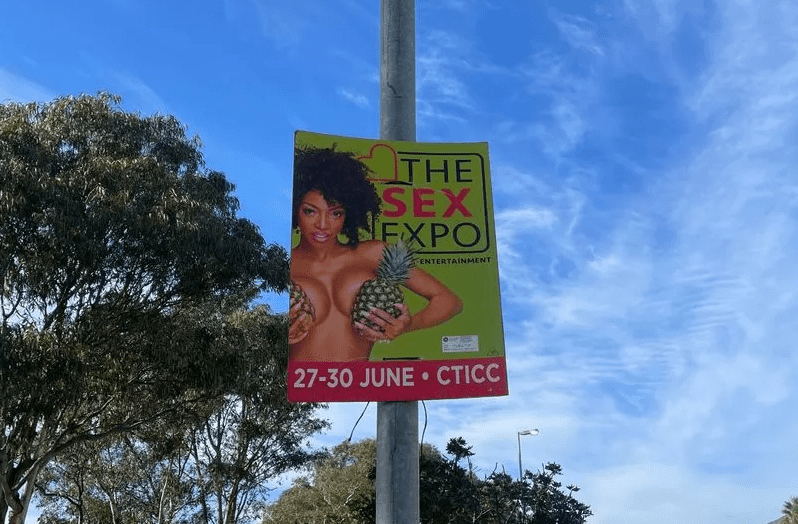
Cape Town: Sex Expo street ads banned for being ‘too spicy’
Several complaints have been brought to the City of Cape town about some of the Sex Expo’s advertising posters.

The City of Cape Town has once again banned certain pieces of artwork from the Sex Expo’s outdoor advertising campaign – deeming them too risqué.
The Cape Town expo is set to take place from 27 – 30 June. As a result of several complaints brought to the City, the ‘Sexpo’ has had to face the decision that some of their street poster artwork is “just a bit too spicy for the City of Cape Town”.
As a result, only a ‘tasteful’ selection of the provocative posters are being displayed on the city’s street poles, writes BizCommunity.
Despite this setback, the Sex Expo says it is unfazed. The annual event is designed for over-18 consenting adults looking to explore sexuality in a non-judgmental space.
“Known for its emphasis on sexual health, wellness, and education, the Expo remains committed to creating a fun, inclusive, and immersive environment,” their statement read.
JUST NOT SEXY, SAYS CITY OF CAPE TOWN
Last year, the Expo faced similar complaints regarding its outdoor ad campaign.
In 2023 it was South Africa’s first Idols winner – Heinz Winckler – who was offended by posters of a “semi-nude” buttocks and raised a complaint.
He and local City councillors demanded the removal of the posters just days before the event. They also put pressure the street pole advertiser to comply.
This was despite the campaign having been approved by the City of Cape Town, complete with official City stickers.
In response, famed penile artist Pricasso created a portrait of Heinz Winckler with disproportionate private parts, which was prominently displayed at the Expo.
SEX WORKERS RALLY OUTSIDE PARLIAMENT
In related news, a group of sex workers and civil society activists recently rallied outside Parliament, launching a campaign called #WhoSpeaksForUs.
The campaign’s aim is to remind political leaders to take into account the diversity of the people in South Africa. There were no politicians in Parliament at the time of the rally. Therefore, it was more of a symbolic gesture rather than a direct communication channel.
